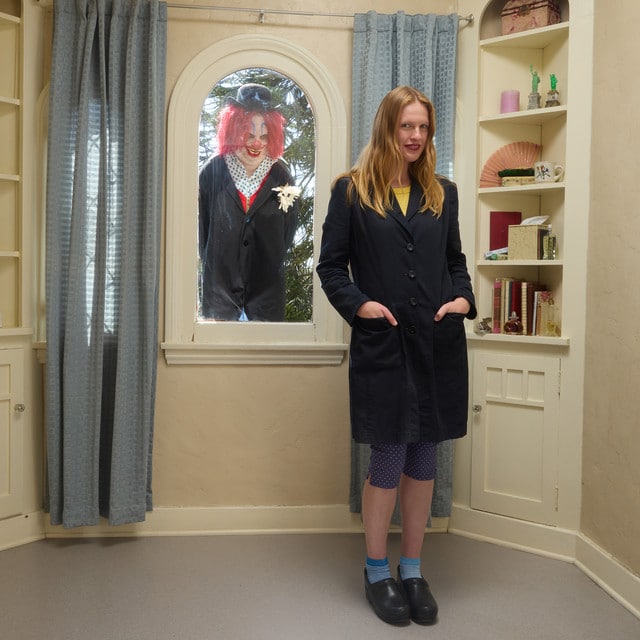In a pop music industry where authenticity is currency, Audrey Hobert is filthy rich. As an NYU Screenwriting grad and a previous writer for Nickelodeon, Hobert has only just fallen in love with songwriting. As the childhood bestie of pop superstar Gracie Abrams, she began collaborating with Abrams on her latest album, The Secret of Us. Working with Abrams inspired Hobert to start writing from her own perspective, and she released her first single, “Sue Me,” in May to mass TikTok acclaim. On Who’s the Clown? Hobert steps in front of the microphone to give us her unfiltered perspective on life in all of its wildly personal glory.
Labelled the “quirky” girl by her label reps, Hobert is able to capture the feeling of being a woman in your 20s. On the second single, “Bowling Alley,” Hobert perfectly captures the fear of missing out. This is Hobert’s magnum opus of sorts, as it cements her cool girl image and roots the album in the relatability and self-deprecation that Gen Z media thrives on. It hones in on the stream of consciousness writing style that Abrams has become known for (think “That’s so True”) and brings conversational sentences to music. Although this wordy, comedic pop is becoming more popularized with artists like Sabrina Carpenter, Hobert’s feels effortless. The lyrics feel like reading a text thread between two friends; it’s intimate, honest and real. When Hobert tells us that she has her “creams on and my gown on, and I don’t think anyone cares if I go or not, so wrong to think everyone loves me, it doesn’t need to be about me all the time” she is admitting the, often selfish, inner monologue that a lives in the mind of any young woman who is plagued by FOMO on social media.
A strong theme throughout the album is Hobert’s honest retelling of the all too relatable feeling that she isn’t hot or cool enough in a way that speaks to everyone, even if they aren’t a popstar. This tactic is best used on “Phoebe,” an album highlight. This song is brilliantly funny and pokes fun at the lengths that young women will go to romanticize their interactions. It uses Friends’ Phoebe Buffay as an analogy for finding freedom in your weirdness and insecurity. “Phoebe” perfectly captures the desperate need to be desired and loved, and the disappointment that comes with never being able to attain the life that social media and popular culture promise in your twenties. Even though Hobert is upset that Joey might not hold her when the episode is over, the line “I think I’ve got a fucked up face, and that thought used to haunt me, ‘til I fell in its sweet embrace” is a beautiful representation of the freedom that comes from letting go of trying to be a Rachel and embracing your Phoebe.
In the current pop landscape, Audrey Hobert brings a bright new perspective for those trying to curate a relatable image. Who’s the Clown? still aligns with the pop music dominating young women and girls’ playlists, but has a clear distinction. Hobert’s glaring honesty and deep relatability have an authenticity that other pop stars strive toward for years. She has her finger on the pulse of the Gen Z experience and makes you want to dance like no one is watching.

